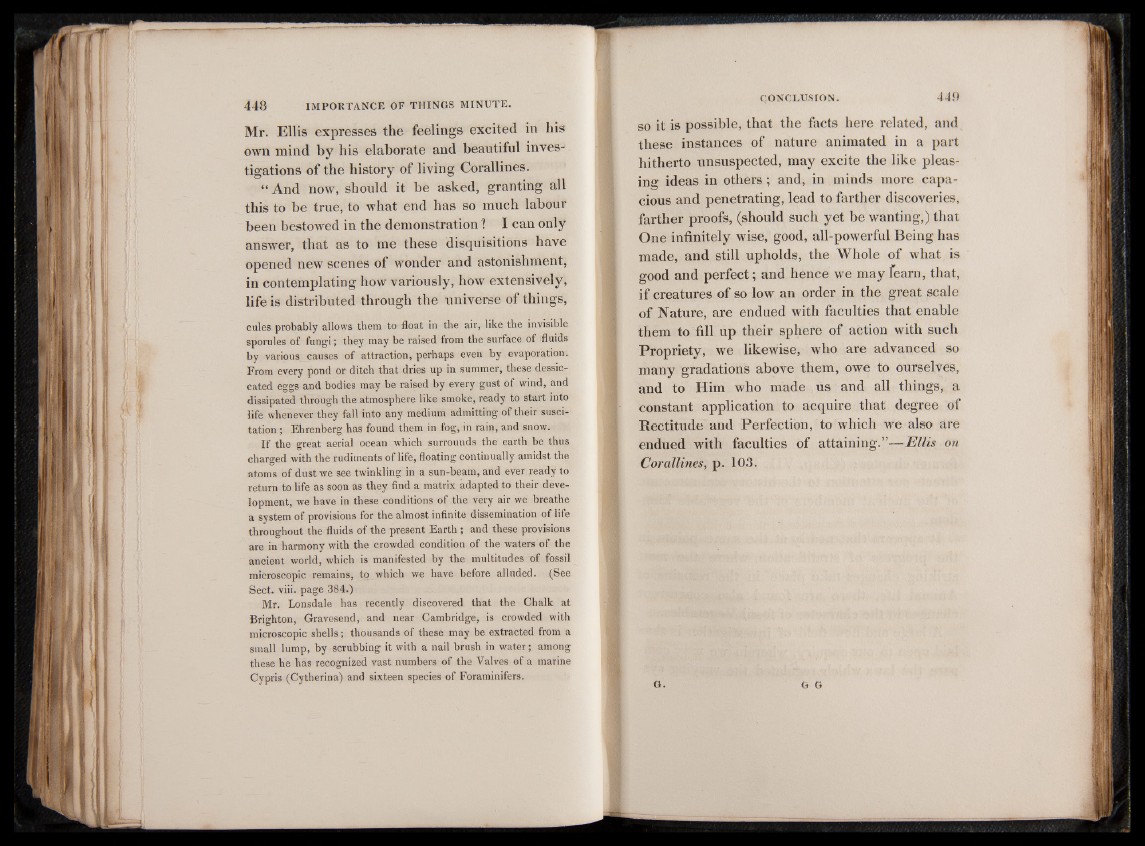
Mr. Ellis expresses the feelings excited in his
own mind by his elaborate and beautiful investigations
of the history of living Corallines.
“ And now, should it be asked, granting all
this to be true, to what end has so much labour
been bestowed in the demonstration ? I can only
answer, that as to me these disquisitions have
opened new scenes of wonder and astonishment,
in contemplating how variously, how extensively,
life is distributed through the universe of things,
cules probably allows them to float in the air, like the invisible
sporules of fungi; they may be raised from the surface of fluids
by various causes of attraction, perhaps even by evaporation.
From every pond or ditch that dries up in summer, these dessic-
cated eggs and bodies may be raised by every gust of wind, and
dissipated through the atmosphere like smoke, ready to start into
life whenever they fall into any medium admitting of their susci-
tation ; Ehrenberg has found them in fog, in rain, and snow.
If the great aerial ocean which surrounds the earth be thus
charged with the rudiments of life, floating continually amidst the
atoms of dust we see twinkling in a sun-beam, and ever ready to
return to life as soon as they find a matrix adapted to their development,
we have in these conditions of the very air we breathe
a system of provisions for the almost infinite dissemination of life
throughout the fluids of the present Earth ; and these provisions
are in harmony with the crowded condition of the waters of the
ancient world, which is manifested by the multitudes of fossil
microscopic remains, to which we have before alluded. (See
Sect. viii. page 384.)
Mr. Lonsdale has recently discovered that the Chalk at
Brighton, Gravesend, and near Cambridge, is crowded with
microscopic shells; thousands of these may be extracted from a
small lump, by scrubbing it with a nail brush in water; among
these he has recognized vast numbers of the Valves of a marine
Cypris (Cytherina) and sixteen species of Foraminifers.
so it is possible, that the facts here related, and
these instances of nature animated in a part
hitherto unsuspected, may excite the like pleasing
ideas in others; and, in minds more capacious
and penetrating, lead to farther discoveries,
farther proofs, (should such yet be wanting,) that
One infinitely wise, good, all-powerful Being has
made, and still upholds, the Whole of what is
good and perfect; and hence we may learn, that,
if creatures of so low an order in the great scale
of Nature, are endued with faculties that enable
them to fill up their sphere of action with such
Propriety, we likewise, who are advanced so
many gradations above them, owe to ourselves,
and to Him who made us and all things, a
constant application to acquire that degree of
Rectitude and Perfection, to which we also are
endued with faculties of attaining.”— Ellis on
Corallines, p. 103.
G. G G